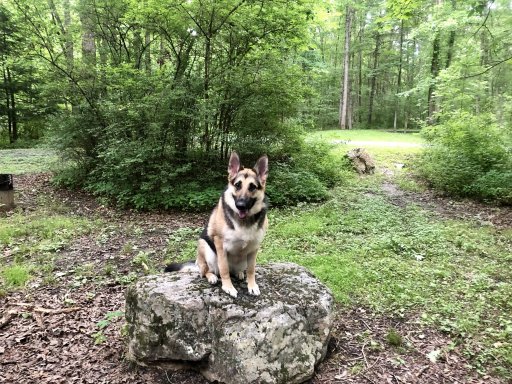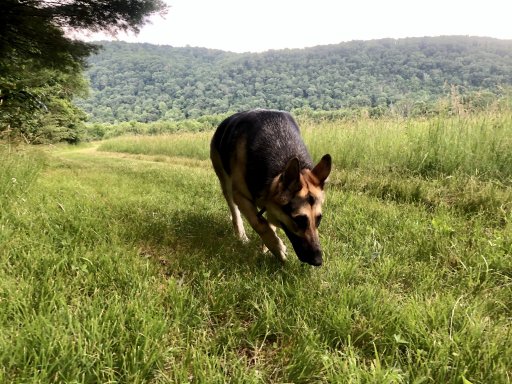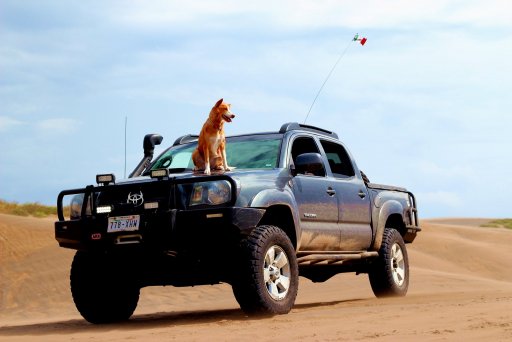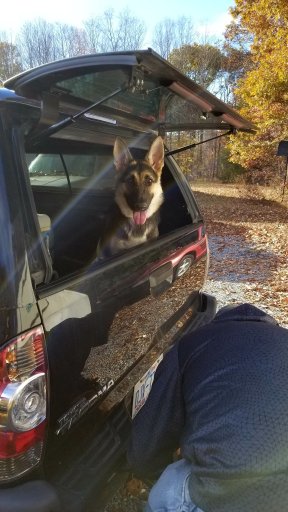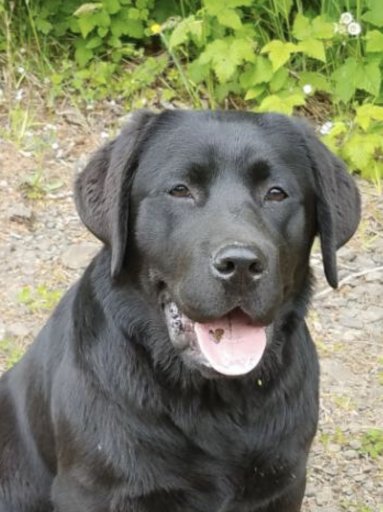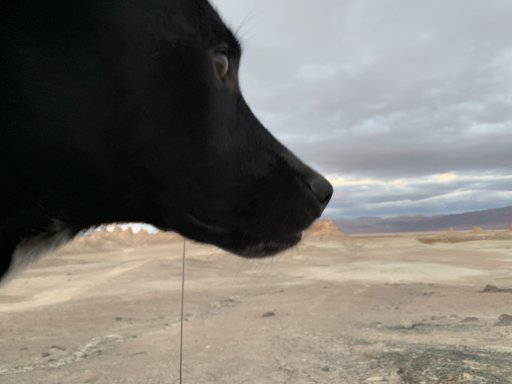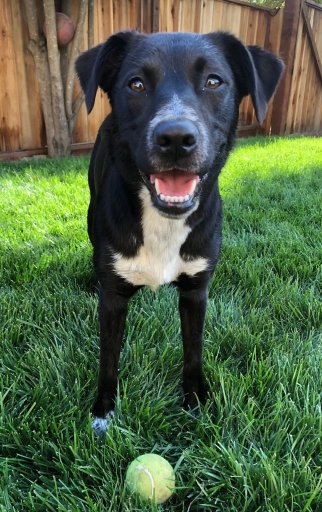
Traveler III
- 4,007
- First Name
- Lucas
- Last Name
- Antes
- Member #
-
7082
- Ham/GMRS Callsign
- KE0ZXA
Overland Bound Community,
My name is Lucas and I am here to talk about Overlanding/Camping with a dog. While it is an easy decision to bring your 4-legged companion along, there are some things to consider before you do.
#1: Is your dog healthy enough for travel and the adventure? I.e. Up to date on vaccinations, no health issues, can handle the climate, can handle long hours on the road and going down the trail?
- This is key before you plan on bringing your pup along. Some dogs, unfortunately, are not suited for camping and Overland travel. You know your dog and your vet can ultimately tell you whether it's a good idea or not to take them. Beyond health, the travel to a destination or stops might also dictate whether they should come along or not. Climate/weather is also another factor since some dogs are built for certain conditions while others can handle varying conditions. My pup is younger and in great health, but I still do consult my vet whenever we're in for check-ups and vaccinations to be sure he's good to go.
#2: Can you bring your dog along everywhere you go? If no, what can you do about where you can't take them? Any restrictions with campsites, attractions, municipalities/countries staying in? Attractions sometimes do not allow dogs. Campsites usually have rules regarding dogs and the etiquette with them, certain municipalities have restrictions/regulations on dogs while countries have their own varying rules and regulations. Definitely research this!
- I have gone places where I could not take my dog everywhere. Sometimes I chose not to go to certain places. Other times I found arrangements for them so that I could go. Ultimately it is up to you and what you want to do/see, but don't think you can't take them places and do thing with them as there are plenty of places to go with dogs.
#3: Carrying enough food and water for them.
- I pack out enough food for my dog based on the days I plan on being gone, with maybe 1-2 extra meals in the event things don't go as planned. My dog is raw fed so I can easily find him more food if needed. I package his food out per meal and freeze all but 1 day worth, then stick it in the cooler with ice blocks, then move a meal A good rule of thumb for water is approximately 1oz per 1lb of body weight per day. You know your dogs drinking habits, but I usually expect a little more consumption based on increased stress and activity. I tend to carry extra water as often as I can just because I don't want to be without potable water at any point.
#4: Gear - bed, blankets, leash, lead, toys, treats, collar and tags, animal/vet records, towel, bowls, first aid kit to accommodate needs of dog, etc?
- This is just as difficult to plan for as it is to plan with your own stuff. I tend to over-plan in general, so that's the case when it comes to weather. Extra warm gear if it's even remote supposed to be cool, and vise versa for hotter conditions. First trip I took, the weather changed on the drive out. Temps dipped down around 15* or more at night. I picked up another blanket and a better dog bed that I still used today that has some sort of coating on the materiel to resist water and keeps relatively clean, but is also machine washable. We were more comfortable because he didn't have to share body heat with me unless he wanted to. Most organized campsites want your pup on some sort or leash/lead, so I always carry one. Bowls for food and water, but I have a collapsible bowl for water on the road as well. I'd recommend keeping one of these collapsible bowls in any vehicle you take the pup in since they're super pack-able and I would consider them a need when I travel with a dog, even for a short period of time. Toys...well they're gonna get bored in the rig. Tags on a collar is a must just in case something does happen and you both get separated. My girlfriend's dog, a blind basset hound, was somewhat famous at OXW this year because he figured out how to open the zipper on our tent and managed to escape in the middle of the night. Unfortunately he lost his tag along the way so the good folks that found him weren't able to just call us. Luckily we were able to get him back Towels are good for brushing off dirty/muddy feet and drying them off. If your pup is like mine, he finds any water or mud....oh well . With his gear, I tend to go for something that is tough, pack-able, easily cleaned, but nothing too crazy expensive because it will get used and abused. Make sure your first aid/trama kit can accommodate your pup! This is key since they're needs are different from ours, but some stuff they can use. Make sure you have any meds they might need. Pepto chews are one I tend to carry all the time for me, but my pup can take them should he have some tummy troubles. Poop bags are a must! Bring plenty!
. With his gear, I tend to go for something that is tough, pack-able, easily cleaned, but nothing too crazy expensive because it will get used and abused. Make sure your first aid/trama kit can accommodate your pup! This is key since they're needs are different from ours, but some stuff they can use. Make sure you have any meds they might need. Pepto chews are one I tend to carry all the time for me, but my pup can take them should he have some tummy troubles. Poop bags are a must! Bring plenty!
#5: Safety - secured animal and gear while traveling, food secure for any other critters looking for a meal, muzzle if needed, commands dog knows to stop/return immediately? Like all passengers, your pup should be secured while riding.
- There are many methods, but I find my pup doesn't move unless it's time to get out at a stop. On the trail or on the road, he sits on his bed or in a seat. I have looked into a restraint and have a way to restrain him if needed while driving, but haven't had to do so yet. Better to have this option as things change constantly depending on many factors. Like all other gear, keep it secured. Food being secured is just as important with dogs. I clean up after mine once he's done just because raw is a little more enticing over kibble. This means it's in its container and inside my secured RTIC cooler. Muzzle might be required dependent on many different factors, but that will be apparent in your research for each stop/destination, as well as the needs of your dog. Commands are key! I constantly work with my dog on his commands but still rely on a leash/lead since he'll be in uncommon areas and can spook.
Be sure to take more breaks on the road! While most dogs can go 4+ hours without a break, it's best to get them out so they can stretch since they're cooped up in the rig. It's convenient that I need to fill up every 3-4 hours on the road so we fill up and walk around a bit.
The key thing is to enjoy the adventure with your pup, because they will love going with you and experiencing new things. There will be a learning curve for both of you, as well as added stress, but you both will learn by doing and will be more comfortable each time. Some of this might be overkill, but it is good to be over-prepared for them.
**RuffWear is a good company to get some quality gear for your pup, but anything will work initially. Use what you have and get what you don't have but will need.
*For reference, I have a mini Australian Shepherd named Roscoe*
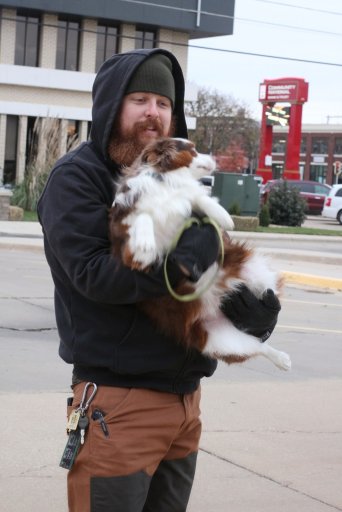
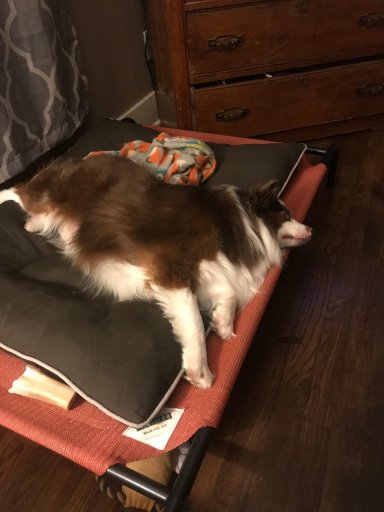
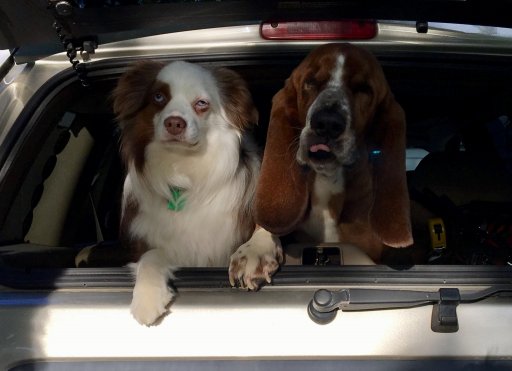
My name is Lucas and I am here to talk about Overlanding/Camping with a dog. While it is an easy decision to bring your 4-legged companion along, there are some things to consider before you do.
#1: Is your dog healthy enough for travel and the adventure? I.e. Up to date on vaccinations, no health issues, can handle the climate, can handle long hours on the road and going down the trail?
- This is key before you plan on bringing your pup along. Some dogs, unfortunately, are not suited for camping and Overland travel. You know your dog and your vet can ultimately tell you whether it's a good idea or not to take them. Beyond health, the travel to a destination or stops might also dictate whether they should come along or not. Climate/weather is also another factor since some dogs are built for certain conditions while others can handle varying conditions. My pup is younger and in great health, but I still do consult my vet whenever we're in for check-ups and vaccinations to be sure he's good to go.
#2: Can you bring your dog along everywhere you go? If no, what can you do about where you can't take them? Any restrictions with campsites, attractions, municipalities/countries staying in? Attractions sometimes do not allow dogs. Campsites usually have rules regarding dogs and the etiquette with them, certain municipalities have restrictions/regulations on dogs while countries have their own varying rules and regulations. Definitely research this!
- I have gone places where I could not take my dog everywhere. Sometimes I chose not to go to certain places. Other times I found arrangements for them so that I could go. Ultimately it is up to you and what you want to do/see, but don't think you can't take them places and do thing with them as there are plenty of places to go with dogs.
#3: Carrying enough food and water for them.
- I pack out enough food for my dog based on the days I plan on being gone, with maybe 1-2 extra meals in the event things don't go as planned. My dog is raw fed so I can easily find him more food if needed. I package his food out per meal and freeze all but 1 day worth, then stick it in the cooler with ice blocks, then move a meal A good rule of thumb for water is approximately 1oz per 1lb of body weight per day. You know your dogs drinking habits, but I usually expect a little more consumption based on increased stress and activity. I tend to carry extra water as often as I can just because I don't want to be without potable water at any point.
#4: Gear - bed, blankets, leash, lead, toys, treats, collar and tags, animal/vet records, towel, bowls, first aid kit to accommodate needs of dog, etc?
- This is just as difficult to plan for as it is to plan with your own stuff. I tend to over-plan in general, so that's the case when it comes to weather. Extra warm gear if it's even remote supposed to be cool, and vise versa for hotter conditions. First trip I took, the weather changed on the drive out. Temps dipped down around 15* or more at night. I picked up another blanket and a better dog bed that I still used today that has some sort of coating on the materiel to resist water and keeps relatively clean, but is also machine washable. We were more comfortable because he didn't have to share body heat with me unless he wanted to. Most organized campsites want your pup on some sort or leash/lead, so I always carry one. Bowls for food and water, but I have a collapsible bowl for water on the road as well. I'd recommend keeping one of these collapsible bowls in any vehicle you take the pup in since they're super pack-able and I would consider them a need when I travel with a dog, even for a short period of time. Toys...well they're gonna get bored in the rig. Tags on a collar is a must just in case something does happen and you both get separated. My girlfriend's dog, a blind basset hound, was somewhat famous at OXW this year because he figured out how to open the zipper on our tent and managed to escape in the middle of the night. Unfortunately he lost his tag along the way so the good folks that found him weren't able to just call us. Luckily we were able to get him back Towels are good for brushing off dirty/muddy feet and drying them off. If your pup is like mine, he finds any water or mud....oh well
#5: Safety - secured animal and gear while traveling, food secure for any other critters looking for a meal, muzzle if needed, commands dog knows to stop/return immediately? Like all passengers, your pup should be secured while riding.
- There are many methods, but I find my pup doesn't move unless it's time to get out at a stop. On the trail or on the road, he sits on his bed or in a seat. I have looked into a restraint and have a way to restrain him if needed while driving, but haven't had to do so yet. Better to have this option as things change constantly depending on many factors. Like all other gear, keep it secured. Food being secured is just as important with dogs. I clean up after mine once he's done just because raw is a little more enticing over kibble. This means it's in its container and inside my secured RTIC cooler. Muzzle might be required dependent on many different factors, but that will be apparent in your research for each stop/destination, as well as the needs of your dog. Commands are key! I constantly work with my dog on his commands but still rely on a leash/lead since he'll be in uncommon areas and can spook.
Be sure to take more breaks on the road! While most dogs can go 4+ hours without a break, it's best to get them out so they can stretch since they're cooped up in the rig. It's convenient that I need to fill up every 3-4 hours on the road so we fill up and walk around a bit.
The key thing is to enjoy the adventure with your pup, because they will love going with you and experiencing new things. There will be a learning curve for both of you, as well as added stress, but you both will learn by doing and will be more comfortable each time. Some of this might be overkill, but it is good to be over-prepared for them.
**RuffWear is a good company to get some quality gear for your pup, but anything will work initially. Use what you have and get what you don't have but will need.
*For reference, I have a mini Australian Shepherd named Roscoe*



Last edited:


